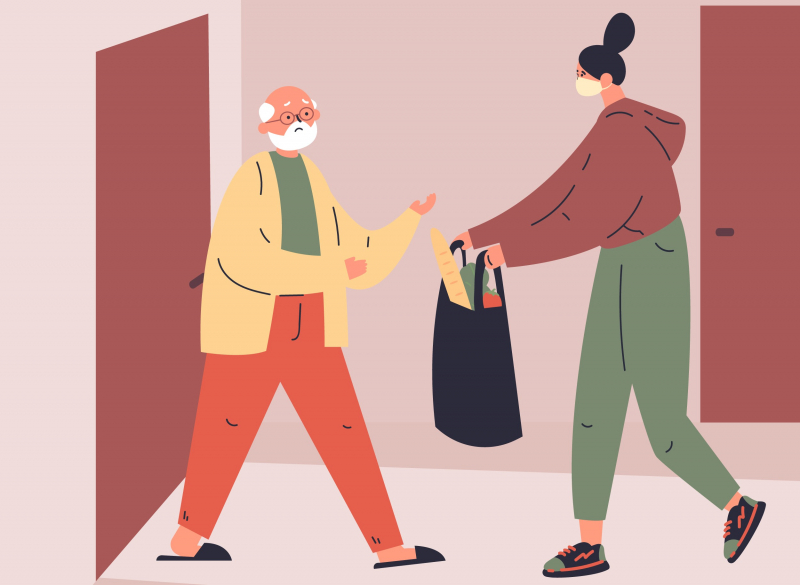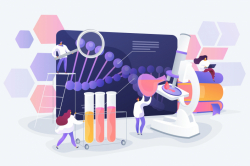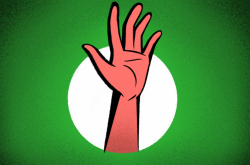Maria Stepanova
a student at the Faculty of Food Biotechnologies and Engineering
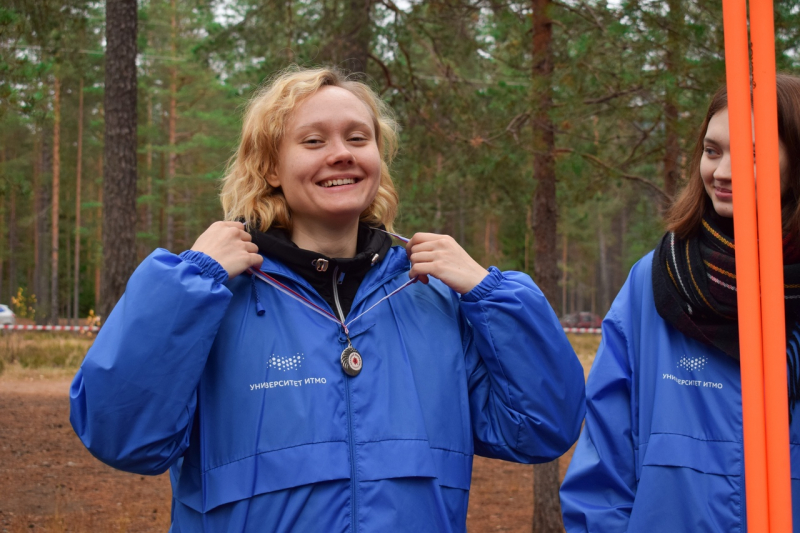
During my volunteering shifts, I receive requests, call and clarify the orders, and then buy and deliver food and medicines to the elderly. Apart from this, I also help the Rus foodbank with packing and delivering food baskets to veterans as well as multiple-children and low-income families.
Despite the pandemic, I wasn’t afraid of moving around the city and communicating with people. I understood that I was doing an important deed and all the fears should take a back seat. If it hadn’t been for the volunteers’ bravery, it’s unlikely that we would have helped so many people. Of course, we’re adhering to all the safety measures, but work attitude also plays a big part.
Over the course of the volunteering effort, there have been a lot of funny and interesting stories. For example, once I delivered groceries to a grandpa who lived on the second floor, via a rope. This was unusual.
By participating in this initiative, I developed my communicability. Today, it’s a very valuable skill. What’s more, this provided me with experiences that aren’t very common in our daily lives. It was very pleasant to witness everyone working as a team, ours is a tightly knit group of people with a common goal – to do a good deed. After a day of volunteering, you feel incredible satisfaction from the work you’ve done. Each smile, each “thank you” is a signal that I made someone happier today. And this, in turn, makes me happy.
Andrey Zlenko
the head of the Department for the Development of Student Initiatives
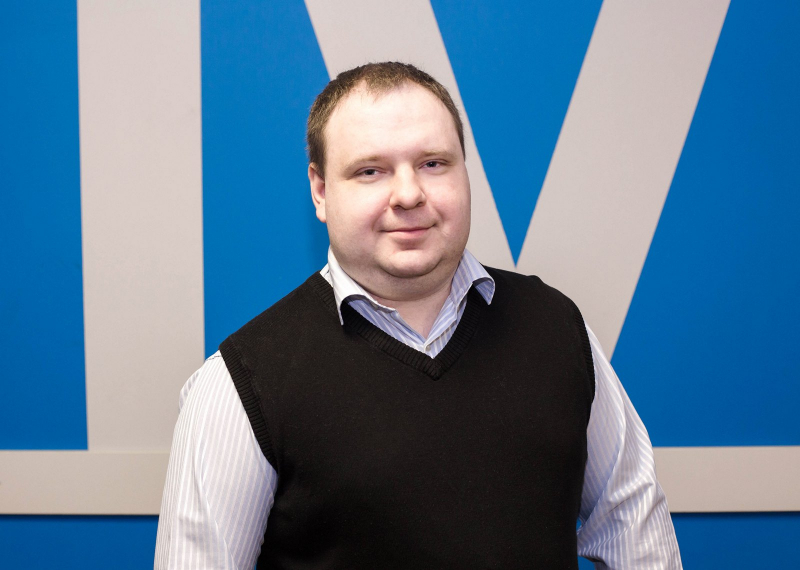
In the #WeAreTogether initiative, I’m both a volunteer and auto volunteer. There was no time to think about fears, I was thinking about who would do this work if not us. Everyone ages, and there is a possibility that some of us will also find ourselves in such a difficult situation. We will be hoping then that we’ll be helped. And many of us have grandparents who live in other regions and are also helped by other volunteers – this is how the kindness boomerang works.
Participating in the initiative gives me positive emotions, as well as an opportunity to meet new people. Every drive for me is special. Once I drove to a veteran who asked me to just sit with him and talk. This was on May 9, and he told me a couple of stories from the war. This was the first time in my life that I’d visited a veteran and listened to wartime stories firsthand.
Maksim Radaev
a student at the Faculty of Laser Photonics and Optoelectronics
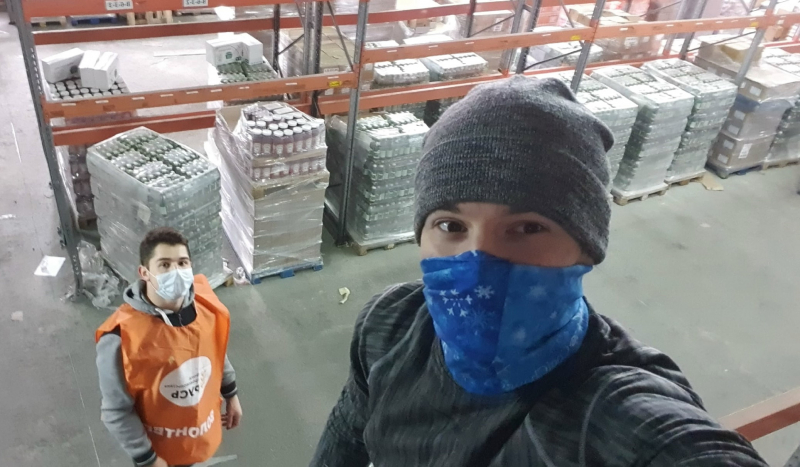
Like many other volunteers, my participation in the #WeAreTogether amounted to receiving requests, calling the elderly, buying the necessary groceries and medications. I also helped out the Rus foodbank by assembling and delivering orders.
I was invited to participate by two wonderful people: Ekaterina Kuznetsova and Andrey Zlenko. They told me about the opportunity to help the elderly who were left alone during self-isolation and needed help. I agreed with pleasure, because I perfectly understand the difficult situation these people found themselves in.
Initially it wasn’t easy for me to get about St. Petersburg as it is quite a big city and I hadn’t been to many districts before. But thanks to frequent drives with auto volunteers, I developed some sense of direction.
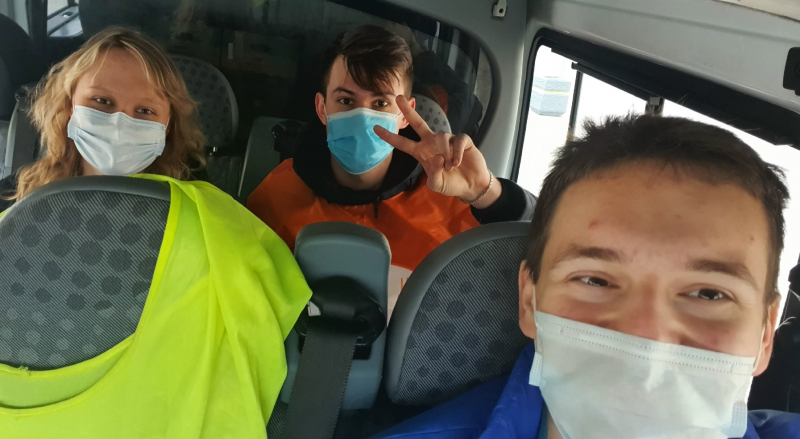
To people who are asking us for help, we’re like rays of kindness amid the gloom and doom of the quarantine. I try to approach each person individually, listen to them, and give some advice, because they trust us.
Participation in this initiative allowed me to expand my circle of acquaintances, exchange experience, learn something new from other volunteers. This initiative brings nothing but positive emotions that are impossible to describe but are incredibly cool to experience.
Alyona Tarasova
a manager at the Department for the Development of Student Initiatives
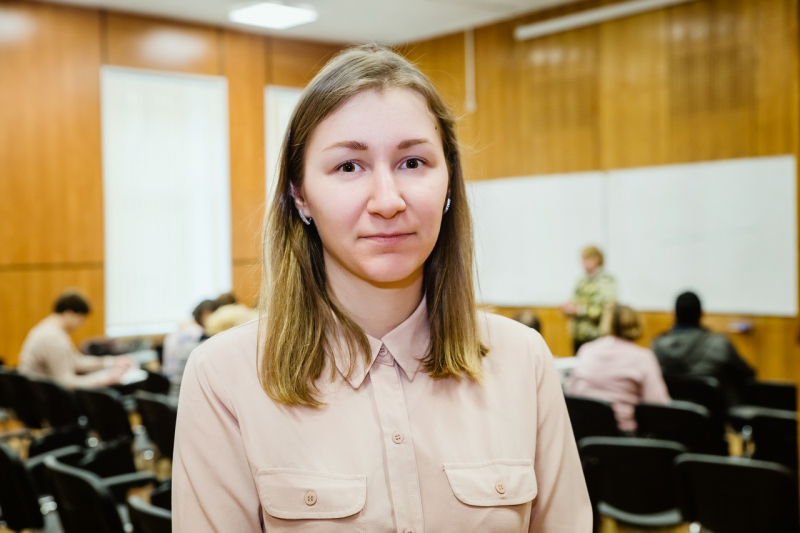
I am a team leader in the Kalininsky District. We’re on weekly duty on the Dobro ONF website. The headquarters provides us with all the queries from the website, and we pick out those that are applicable to our district and then divide them between the volunteers.
By and large, I’ve only been coordinating others, but there have been a couple of times when I drove out to respond to requests with my husband. I particularly remember a grandma that asked to be brought 15kg of potatoes because this was one of the few foods she could eat.
For some reason, the first to come to my mind are the poignant, sad moments. Sometimes we get requests from people who don’t have any money at all, in which case the initiative’s volunteering headquarters provides them with free food.
Now our work has changed somewhat. There are less incoming requests, whereas initially we were on duty day and night. What’s more, there have been requests from people who have been diagnosed with COVID-19. They are sitting at home and also need food and medicines. But we don’t work with them – there are people who have been specially trained for that, these volunteers are mostly medical workers.
Yuri Frolov
a student at the Faculty of Control Systems and Robotics
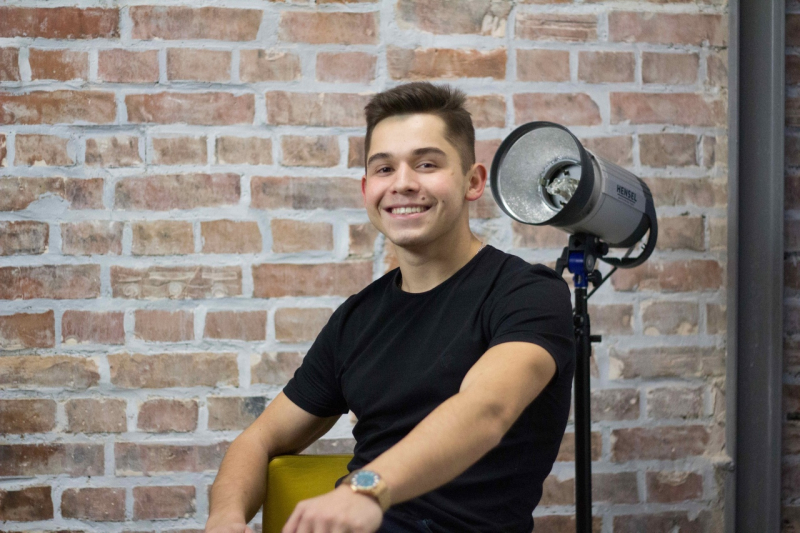
I found the information about this volunteering effort online. I got interested in the track on helping the elderly in situations of emergency. What is it? How does it work? Is it dangerous? I got answers to these questions during the training, and started my volunteering journey on March 28.
Every day, I purchase and deliver food and medications. Working in a team with other volunteers, we cover from 4 to 12 requests per day. Every shift begins with visits to shops and pharmacies. This allowed me to learn a lot of things about economizing – sometimes our team conversations start with news about discounts and offers on food products.
#WeAreTogether doesn’t only mean offering help to those who need it, it also involves unique places and people I’d never meet under other circumstances. For example, recently we’ve visited a startlingly beautiful 130-years-old building. It had a stunning lobby with an old mirror and an armchair, and the window view that’s like a fairytale, according to the elderly man we went over to help. We even wrote down his contact as “fairytale grandpa”.
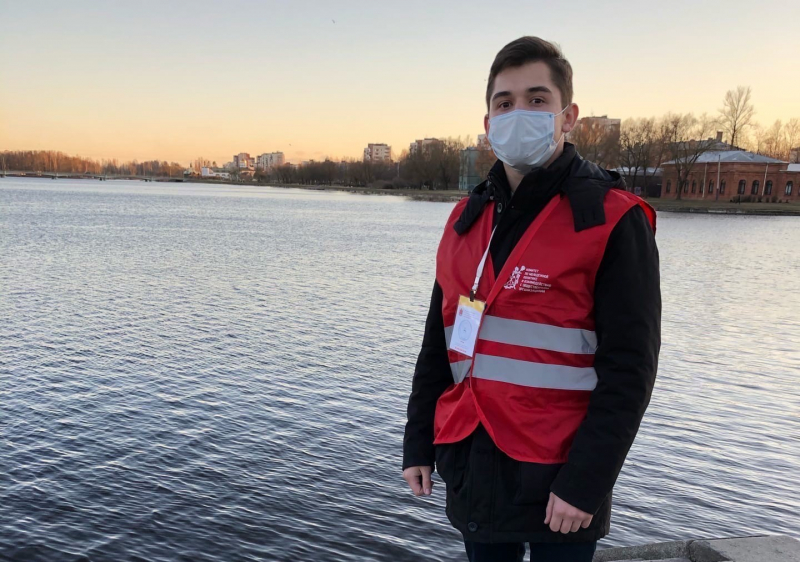
Oftentimes, the people we visit try to give back: with chocolates or pickles. One grandpa even decided to give us a branch pipe from an old Zhiguli and a heap of books for beginner drivers. But we always refuse.
And sometimes we get advanced pensioners who order crisps and cola, which is endearing.
Volunteering in such a difficult time is an enormous boost of good vibes which we otherwise don’t get a lot of these days. We derive lots of pleasure from the process, from the work itself, and even more from the words of gratitude – these are so very heartwarming.
We’ll add that at the end of March, ITMO University’s Volunteer Center also started to offer help to older members of ITMO.Family by delivering groceries and helping them set up online classes.
